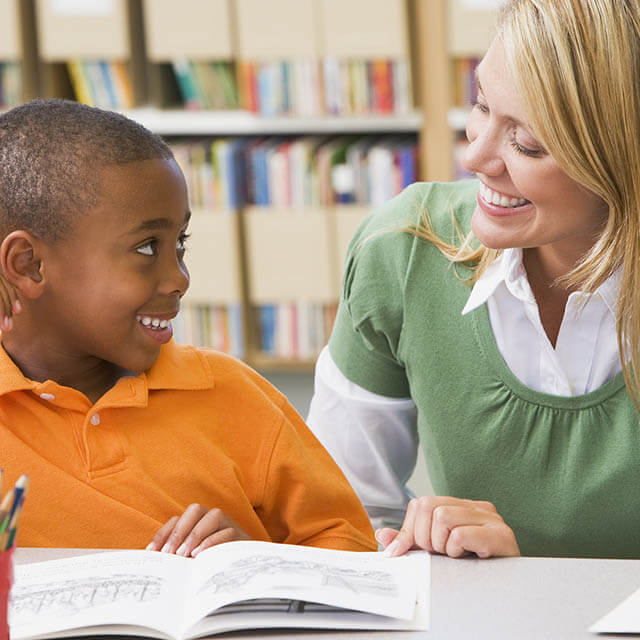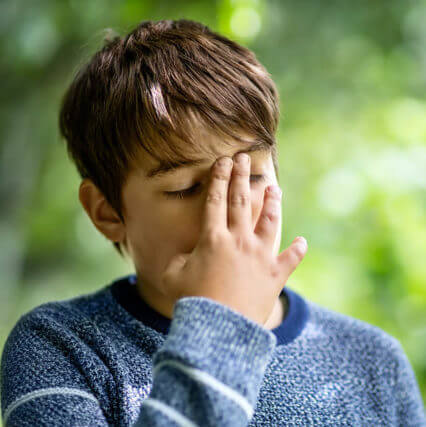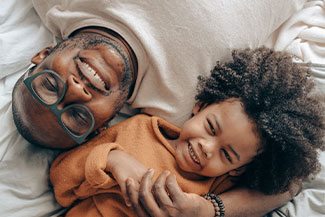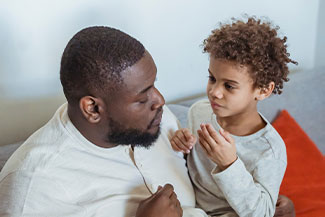Vision Therapy in Texas
What Is Vision Therapy?

20/20 vision is but ONE of over 17 important visual skills required to function efficiently to perform well in school or sports.
Children with reduced vision skills may work harder than their peers, yet be unable to achieve the results they seek. Their poor vision skills may also cause them to struggle to concentrate throughout the day.
Vision therapy is an evidence-based program to effectively strengthen the specific vision skills impacting your child and has been clinically proven to increase reading levels, enhance comprehension, maintain longer attention spans and even improve sports performance.
See a difference in your child’s school performance!
If your child has been diagnosed with a reading or learning difficulty or just not reaching their potential at school, or on the sports field, schedule an appointment with Dr. Lisa Roach for a functional eye exam. Over 17 visual skills will be assessed, including eye tracking, reading fluency, focusing and depth perception.
Don’t let your child suffer in silence.
Vision therapy might just be the solution you have been seeking. Talk to us! We’ll help your child maximize their visual skills and resolve any underlying visual problems impacting your child.
How To Know If Your Child Needs Vision Therapy

If your child has any of the following, vision therapy can significantly change his or her life for the better.
- Skipping words or lines while reading
- Still not reading at grade level
- Confusing the letters b, d, p and q
- Rubbing eyes or closing one eye when reading or doing near work
- Holding books too closely or tilting head when reading
- Eyestrain or headaches with schoolwork or computer use
- Difficulty with reading comprehension
- Blurred or double vision when reading
- Avoiding homework
- Poor attention span
- Fidgeting and squirming in the chair
Help Your Child Reach Their Potential With Vision Therapy
At Vision Therapy Center At Eye Trends we use a holistic approach to vision care. In addition to the usual eye exam, we also test the entire visual system (functional vision exam) to check that it has the developmental maturity, strength, and stamina to function optimally throughout the visual tasks performed on a daily basis.
Once we identify any vulnerable areas within the visual system that could interfere with reading and learning, we develop an effective vision therapy regimen made of individually-tailored eye exercises made to improve visual functions and retrain the brain to interpret visual input more accurately.
Contact Vision Therapy Center At Eye Trends today for a functional eye exam, or visit us with your concerns regarding your child’s vision, and we’ll be sure to find the best way to treat his or her visual problems.

What Parents Are Saying About Us
Vision Therapy May Be What Your Child Always Needed | FAQ
Improve your child’s confidence levels with vision therapy!
Vision therapy is a non-surgical treatment program that is typically compared to physical therapy, but for the eyes and brain. Vision therapy uses exercises, lenses, specific instruments, and occlusions to enhance visual function.
All vision therapy programs are customized and can result in significant lasting improvements within a relatively short period of time. To learn more, contact us today and discover how we can help your child improve their performances both in school and on the sports field.









